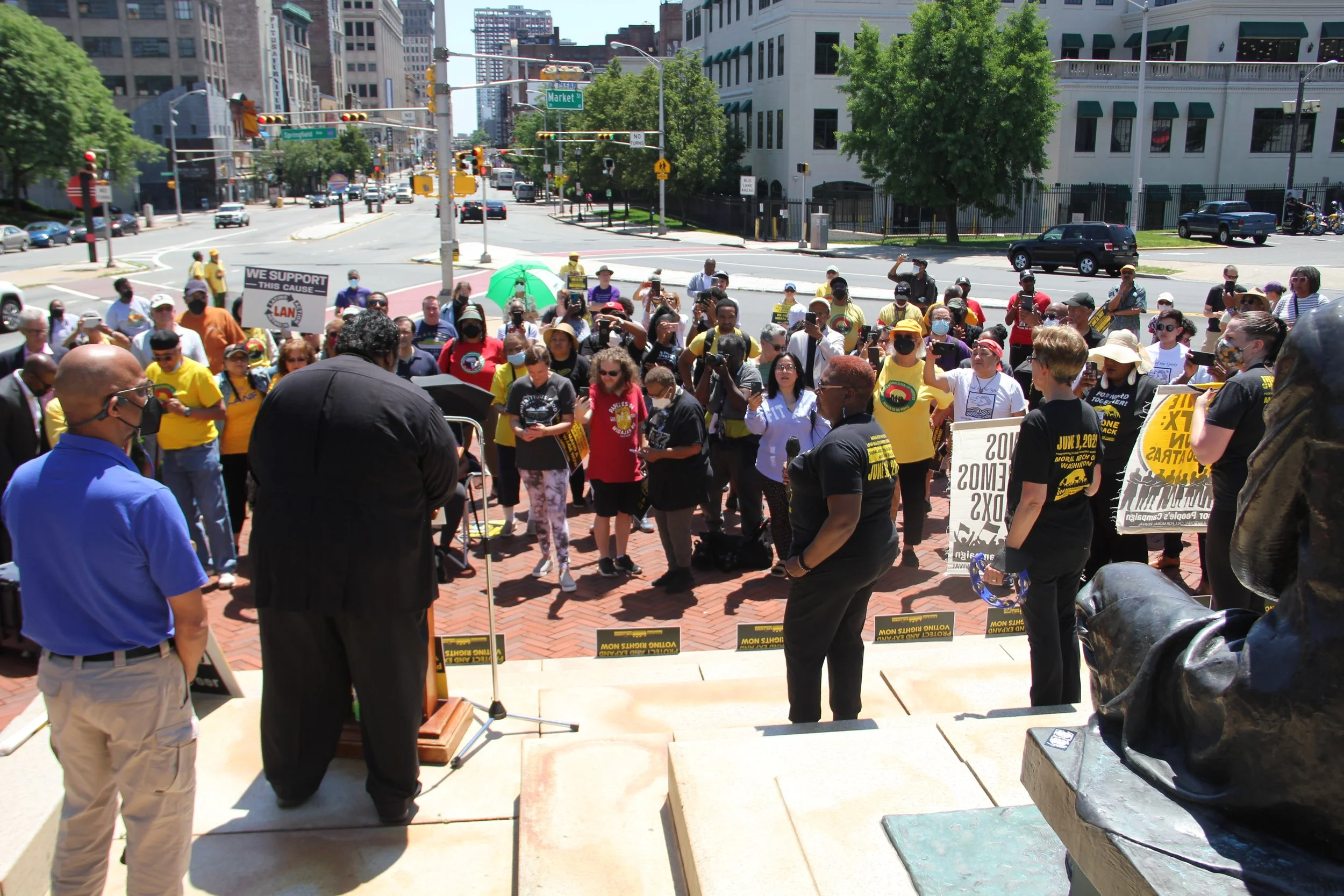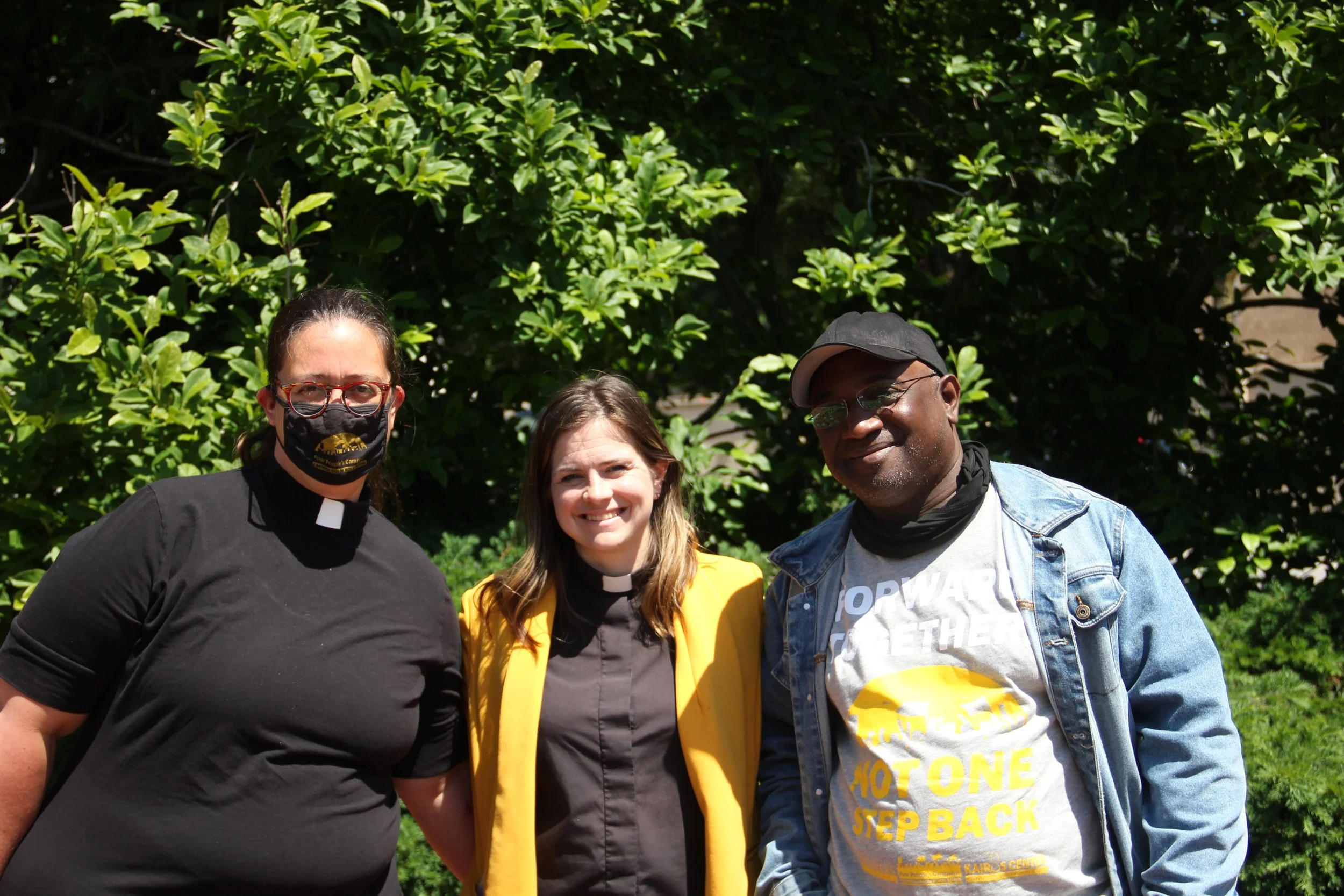A war on poverty: the Poor People’s Campaign (PPC) brings the urgency of now to New Jersey
Rev. William J. Barber gives a speech at Poor People’s Campaign (PPC) rally in Newark, N.J. on June 4, 2022. (Josie Gonsalves for Public Square Amplified)
NEWARK, NJ—Not only is the United States one of the world's wealthiest countries, but New Jersey is one of the richest states in the nation. The annual Gross Domestic Product (GPD) or total market value in the U.S. is around $20 trillion, and New Jersey is home to booming industries and two of the wealthiest counties in the country, Monmouth and Bergen County, where the average household earns $150,000. Despite abundant wealth and productivity, nearly half the nation is poor and 41 percent of New Jerseyans struggle to afford housing, child care, food, taxes and even a cellphone plan, the basics needed to live and work in the modern economy.
This persistent and pervasive wealth disparity is driving organizations across the country and state to demand change—a national call for moral revival. "There's no reason that half the nation should be suffering like this," said Rev. William J. Barber II, the co-chair of the Poor People's Campaign (PPC). "That's why on June 18, we're calling for a declaration, not a day. A mass poor peoples and low-wage workers assembly, and moral march on Washington and to the polls."
As a precursor to the Moral March on Washington, the PPC held a rally in Newark, New Jersey calling for a Third Reconstruction—real legislative action that invests in infrastructure, healthcare, accessibility and better living conditions. Activists say another reconstruction would ultimately address the egregious moral narrative that blames and penalizes the poor instead of the systems that cause and exacerbate poverty, such as systemic racism, health care denial and the war economy.
A Third Reconstruction congressional bill (H. Res. 438) sponsored by Rep. Barbara Lee (D-CA-13) was introduced in May 2021 with the intent to fully address poverty and low wages from the bottom up and rethink the trillions of dollars spent on war, mass incarceration, policing, immigration and border control.
“We’re willing to spend more to put somebody into prison than we’re willing to spend for an individual to go to college,” said Kevin Pierre, the New Jersey Chair of the PPC. “We really need to reevaluate how wealth is distributed in our nation.”
(From left to right) Rev. Liz Theoharis, Rev. Robin Tanner and Kevin Pierre, New Jersey Chair of the PPC at the PPC rally, June 4, 2022. (Josie Gonsalves for Public Square Amplified)
The U.S. spent $8 trillion on the war on terror. Even with the U.S. out of Afghanistan, military intervention in Iraq and Syria cost $2.1 trillion, and about $355 billion has funded military operations in other countries, such as Somalia. This year, the U.S. spent around $30 billion on military support and operations for Ukraine and its European allies.
The PPC argues that the government can redirect the trillions spent on war to rectify the consequences of capitalism, militarism and racism on the growing class of economically impoverished families and children across the country, such as putting more children into Head Start and Early Head Start programs and covering the costs of Medicaid for millions of adults.
PPC is demanding that legislation and policies are penned and passed that support a federal minimum living wage, universal health care, equitable public education, student debt relief, a robust climate agenda, fair taxation, housing for all, voting rights, funding for childhood programs, immigration rights and indigenous rights.
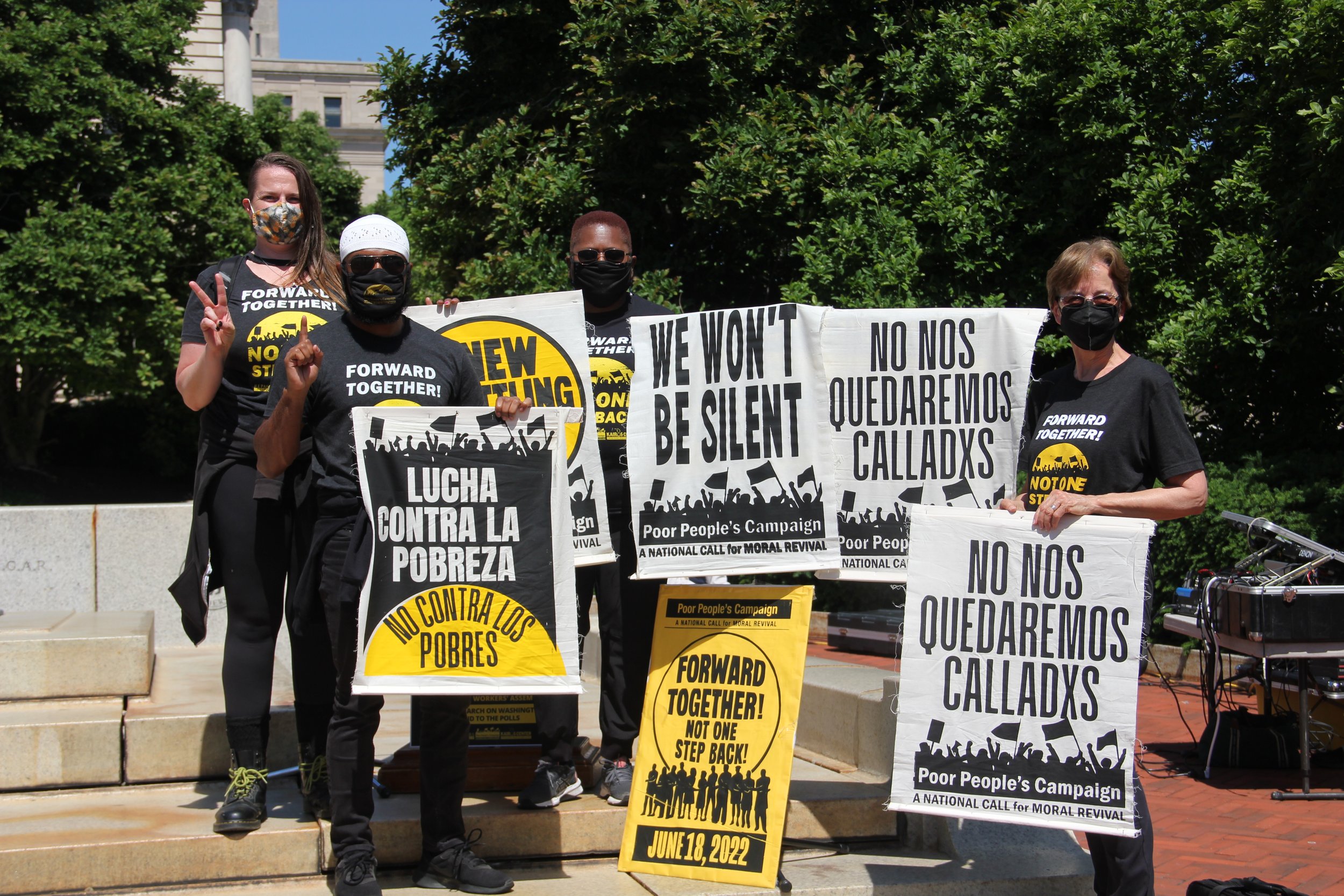
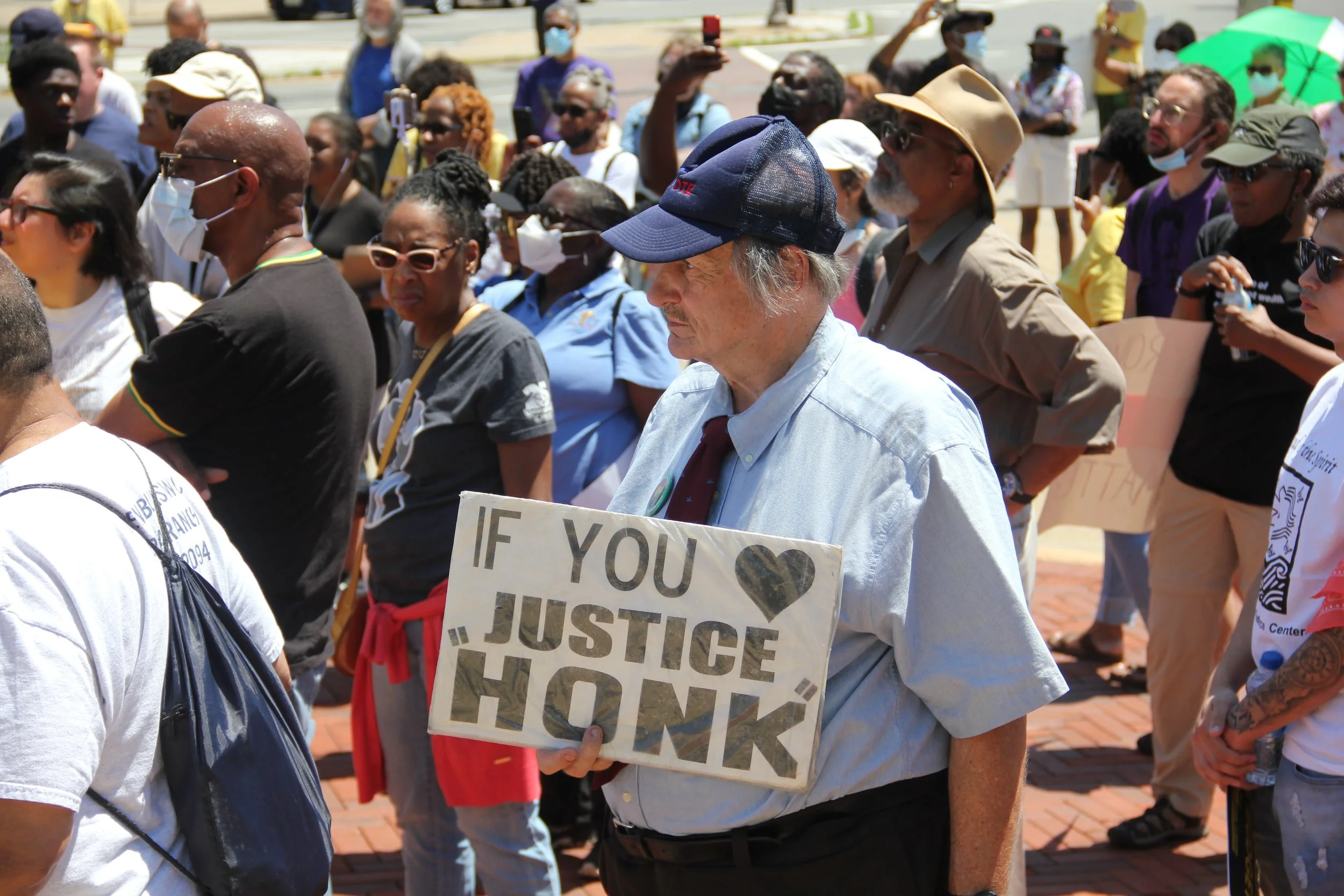
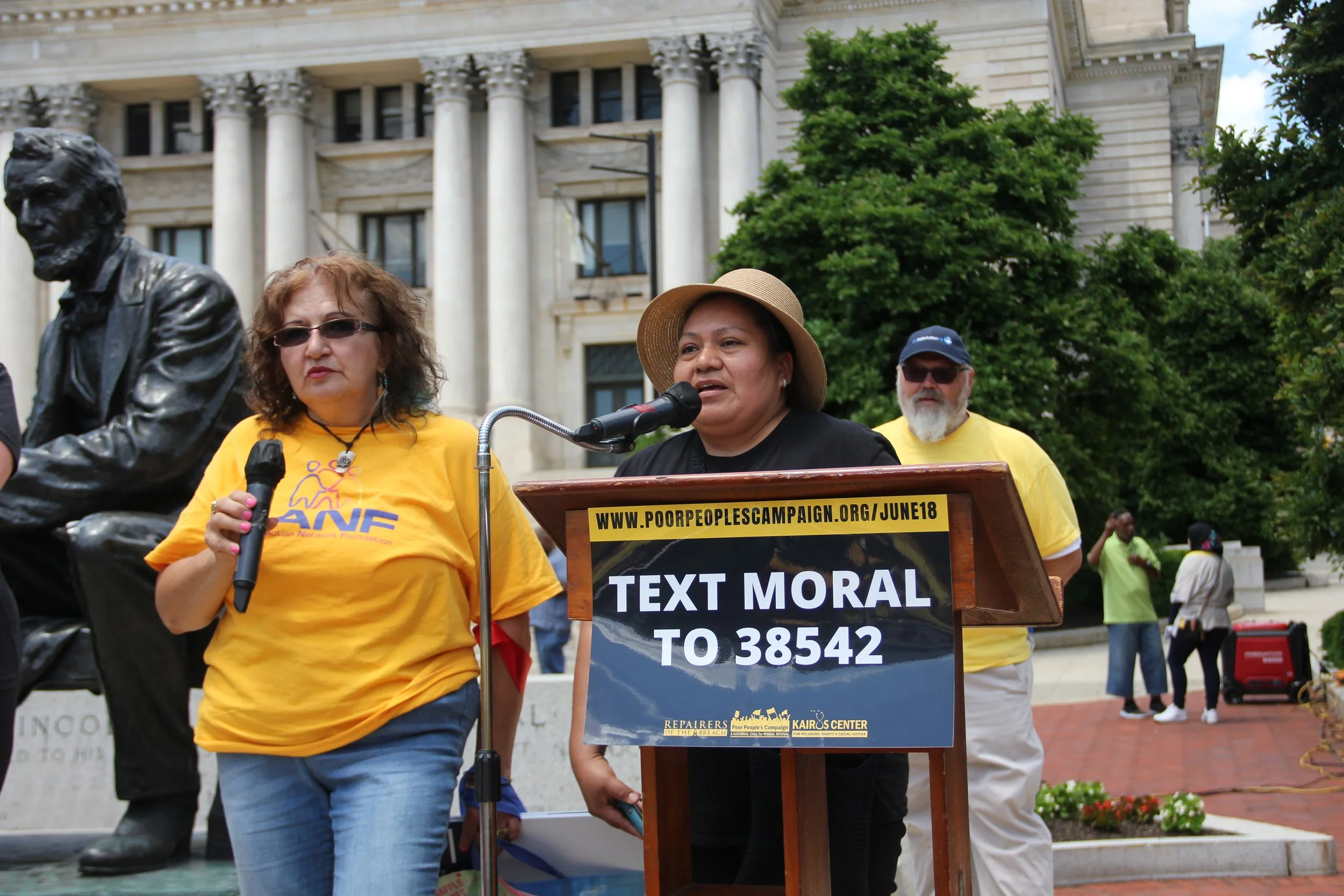
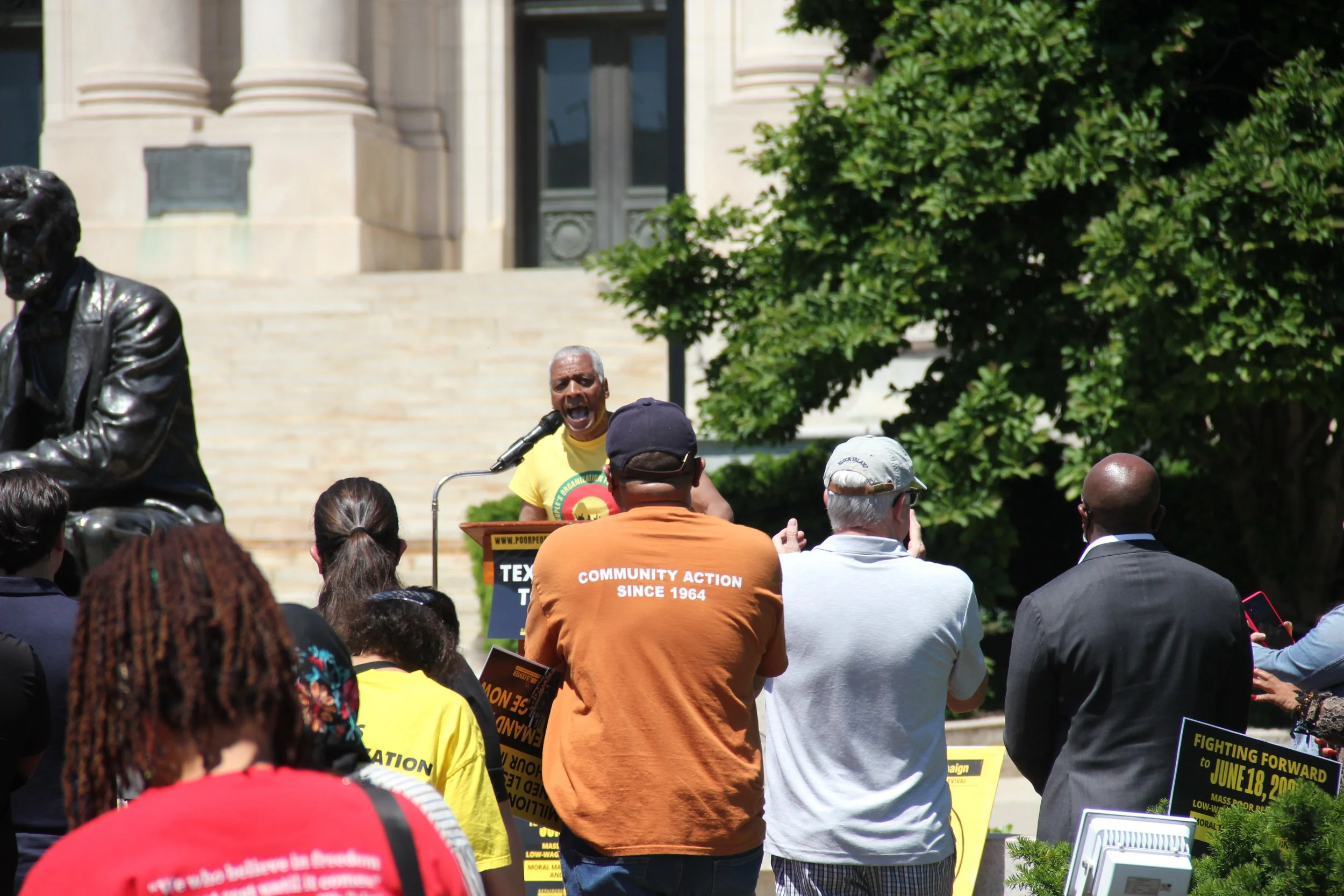
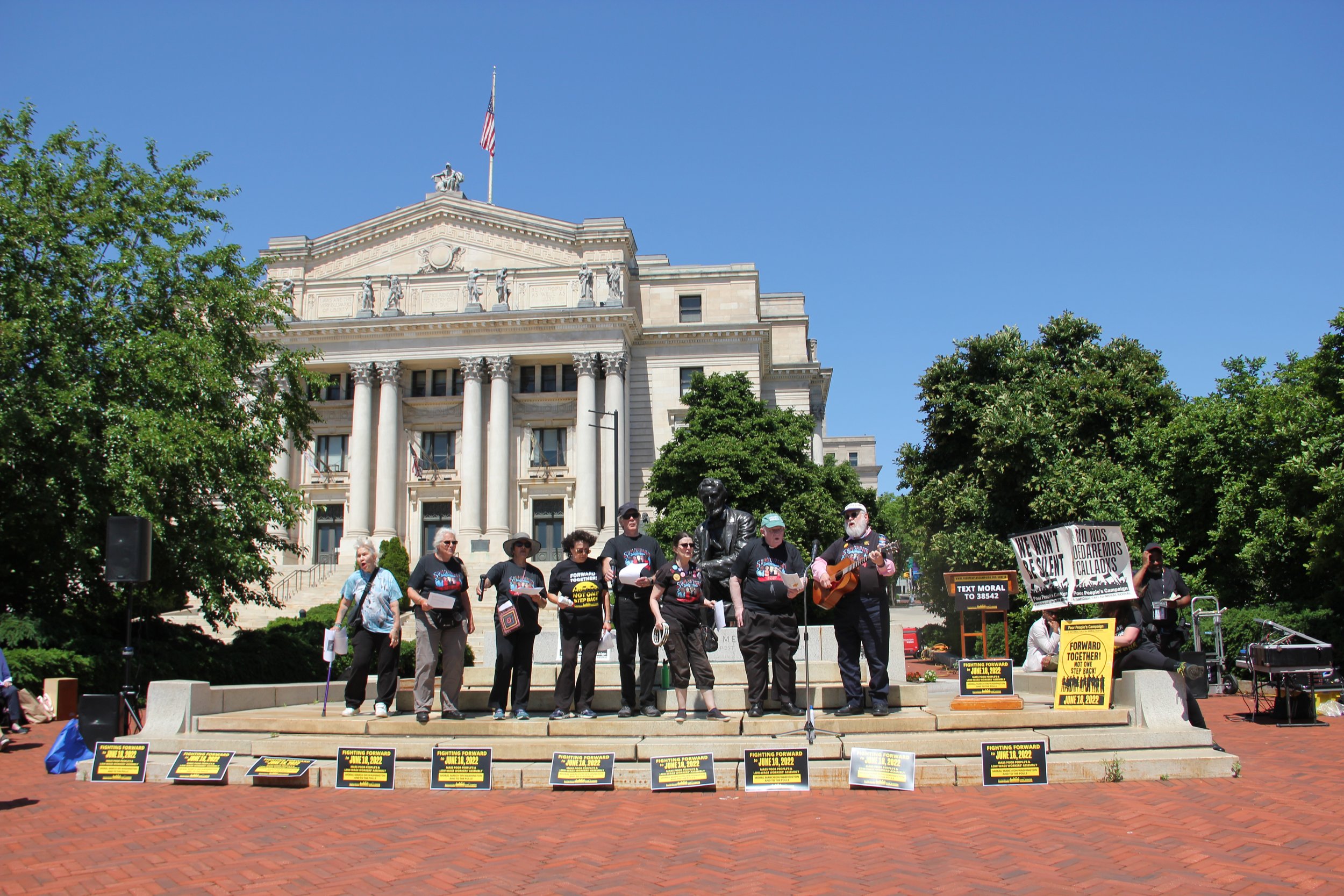
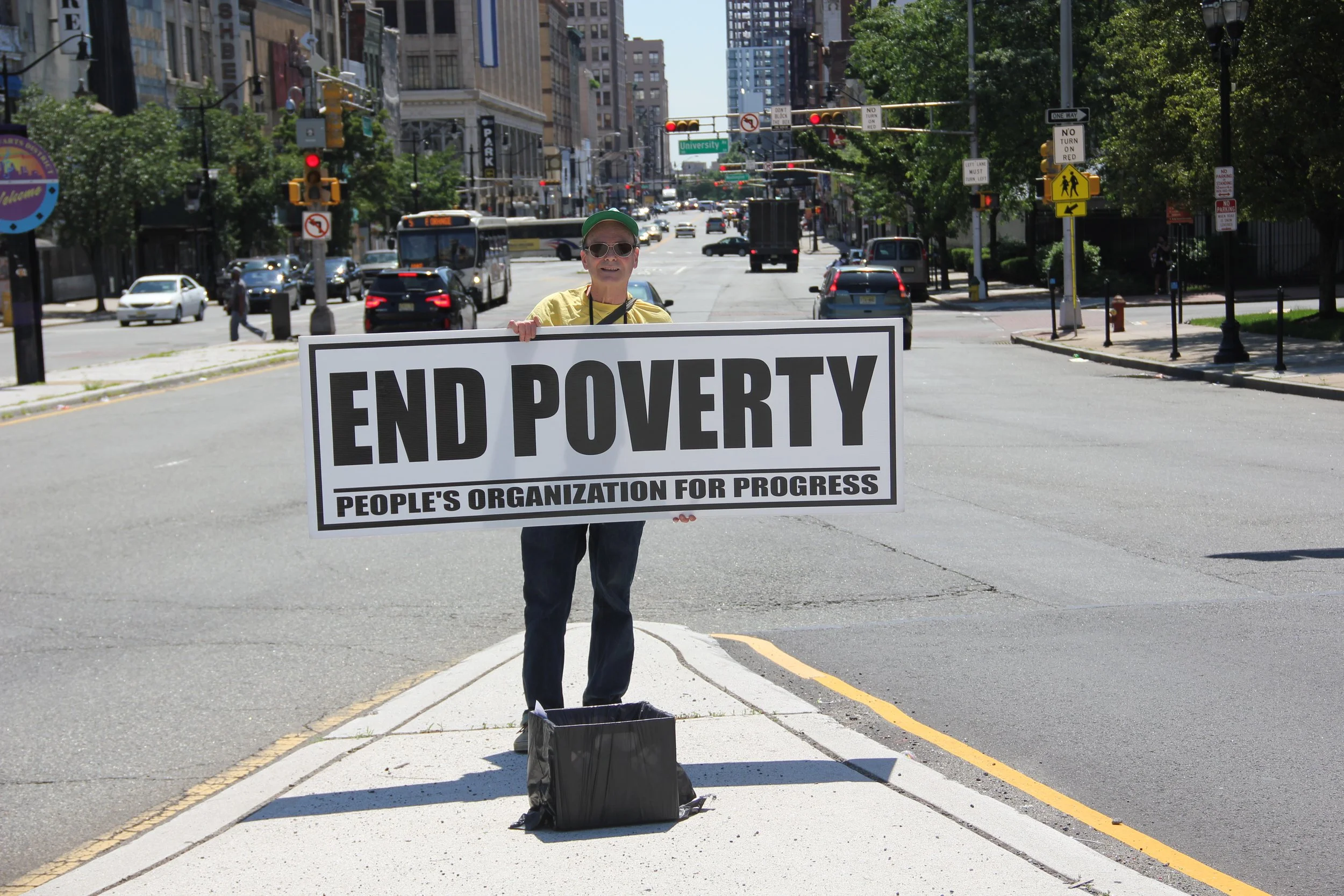
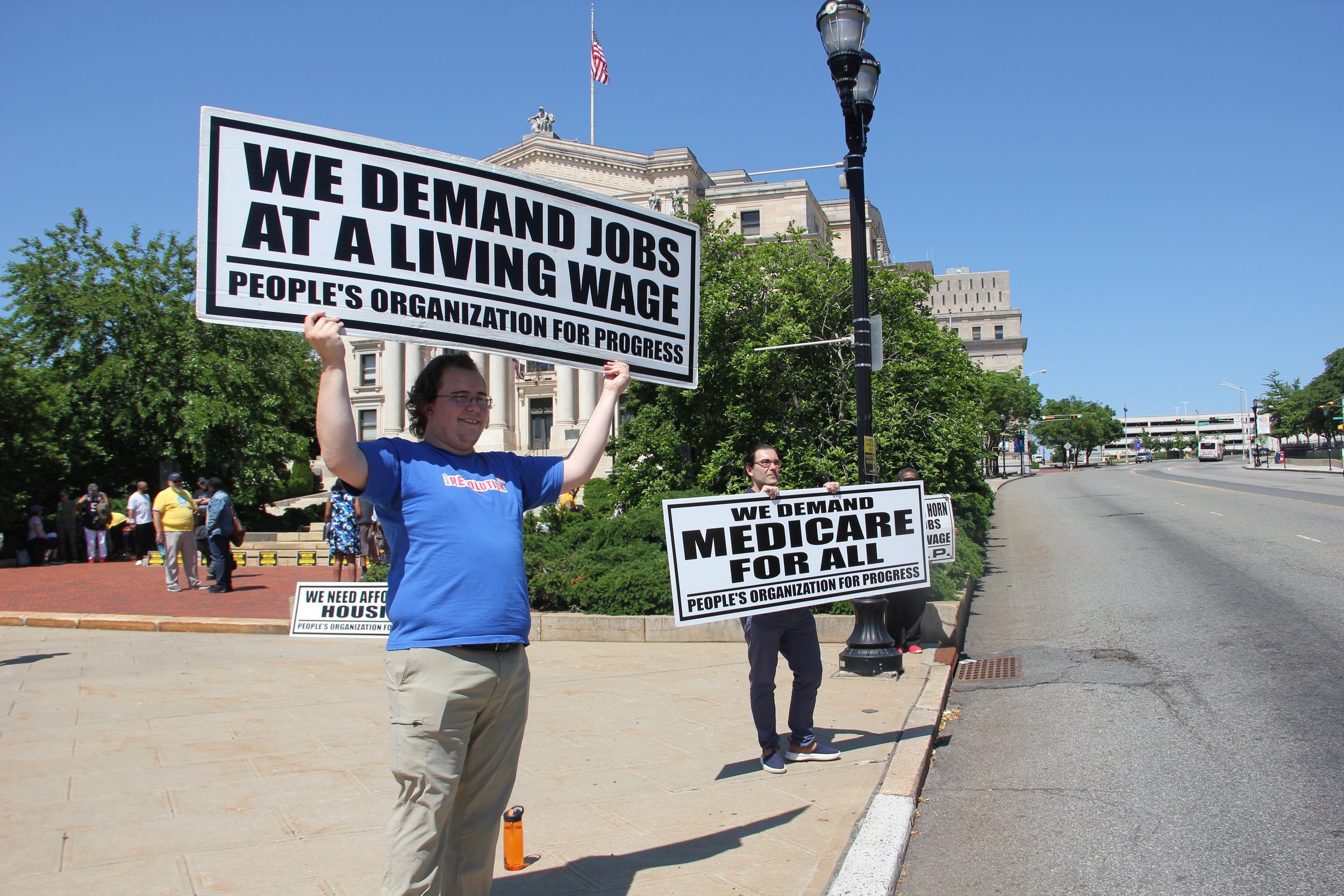
Muta Elamin—a Newark resident and one of many impacted by the war on drugs—wants to see real, transformational legislation that will break the cycle of poverty. “I’m from the bottom of the bottom. I say that in the sense that for anybody who thinks you can bootstrap your way out of this type of poverty, you are wrong. This type of poverty needs resources. This type of poverty needs the world to shut down and address.”
In New Jersey, almost 25 percent of the workforce works for less than $15 an hour. As of January, the minimum wage for most employees stands at $13 an hour. Although Gov. Phil Murphy passed legislation in 2019 to raise the minimum wage to $15 by 2024, it doesn’t apply to all employees and some employers will have until 2027 to make it happen.
However, the National Low Income Housing Coalition found that in every state, people need to earn $24.90 an hour to afford a modest two-bedroom home at fair market rent and $20.40 an hour for a modest one-bedroom rental home. But racial and ethnic income inequality also leads to disparities in housing affordability.
Black and Latino workers who earn a median wage, between the highest and lowest wage, can’t afford a one-bedroom apartment at fair market rent. Meanwhile, 43 percent of Black households and 4 percent of Latino households spend more than 30 percent of their income on housing, compared to 25 percent of white households.
“You can say go get two jobs, three jobs. It’s not going to happen. It’s not practical. We want practical solutions,” Elamin said. “I’m asking for organizations in attendance, that we get a little bit more brave, that we start putting legislation behind things that are going to actually work. This is a war on poverty.”
Still, the U.S. government and capitalist class choose to invest “more money in blowing up the world than fixing the world,” said Barber. The U.S. spends more money on national defense than China, India, Russia, United Kingdom, Saudi Arabia, Germany, France, Japan and South Korea combined.
In order to change the status quo, Barber said people need to organize and wage war with their vote. “We’ve done studies that show in 15 states, poor and low wealth people can fundamentally change any election,” he said. “We’ve got to exercise our power, but we’re also building from the state up. We’re coming to D.C. unified, but the real power is in the states.”
That unification requires poor people, low-wage workers, religious leaders, advocates, and individuals and communities across racial and gender lines to come together. “When we all get together, there’s power. There’s power in our togetherness. And I’ll see you on June 18 when we all get together,” Barber told the crowd.
Not only is the PPC rallying individuals at the state level to march on D.C., they’re building coordinating committees in states “led by poor people all over the country,” Barber said, “We got 45 of them now” to put pressure on senators and legislators in 45 states.
Muhammad Shrief, a resident of Newark, agrees that now is the time for people to band together. He only wishes the Muslim community was more involved or present in these spaces. "It's not about whether you're Muslim or Christian in this day and time that we're living in now. It's about autocracy and those taking advantage of people. They're in the minority, and they're making the decisions."
The PPC has partnered with over 150 organizations to mobilize on June 18, including the National Council of Churches USA, National Council of Jewish Women, Islamic Circle of North America, Physicians for a National Health Program, AFL-CIO: America's Unions, Military Families Speak Out, National Education Association (NEA) and Border Network for Human Rights.
“I definitely support the movement,” said Kim King, a single mother from Newark. “I’ve been fighting for affordability, for bringing change, because the wage does not cover the rising, rising rental rates. It’s a struggle. It’s a daily fight. All these things perpetuate mental illness, stress, and health conditions. We need a coalition. We need help. We need change. Everyone needs to be a part of it. It’s a collective effort.”
From April 2021 to April 2022, the average cost of a one-bedroom apartment in New Jersey rose from $1,803 to $2,396 per month, nearly a 33 percent increase. Not only is minimum wage not enough to cover rising rental rates and the high cost of living in New Jersey—the third highest in the nation—but the healthcare system costs people $1.69 trillion in insurance and out-of-pocket expenses. In New Jersey, around 690,000 people are underinsured or uninsured.
When it comes to healthcare, the U.S. is one of three nations, out of the 25 wealthiest in the world, that does not have some form of universal healthcare. Although income and wealth information isn’t collected from those who have died of COVID-19, and the intersection of poverty with race, gender, ability, health insurance status and occupation is often ignored as well, a study by the PPC showed that people living in low-income counties died at two times the rate of people who lived in richer counties—reaching as high as five times the rate in the winter of 2020 to 2021.
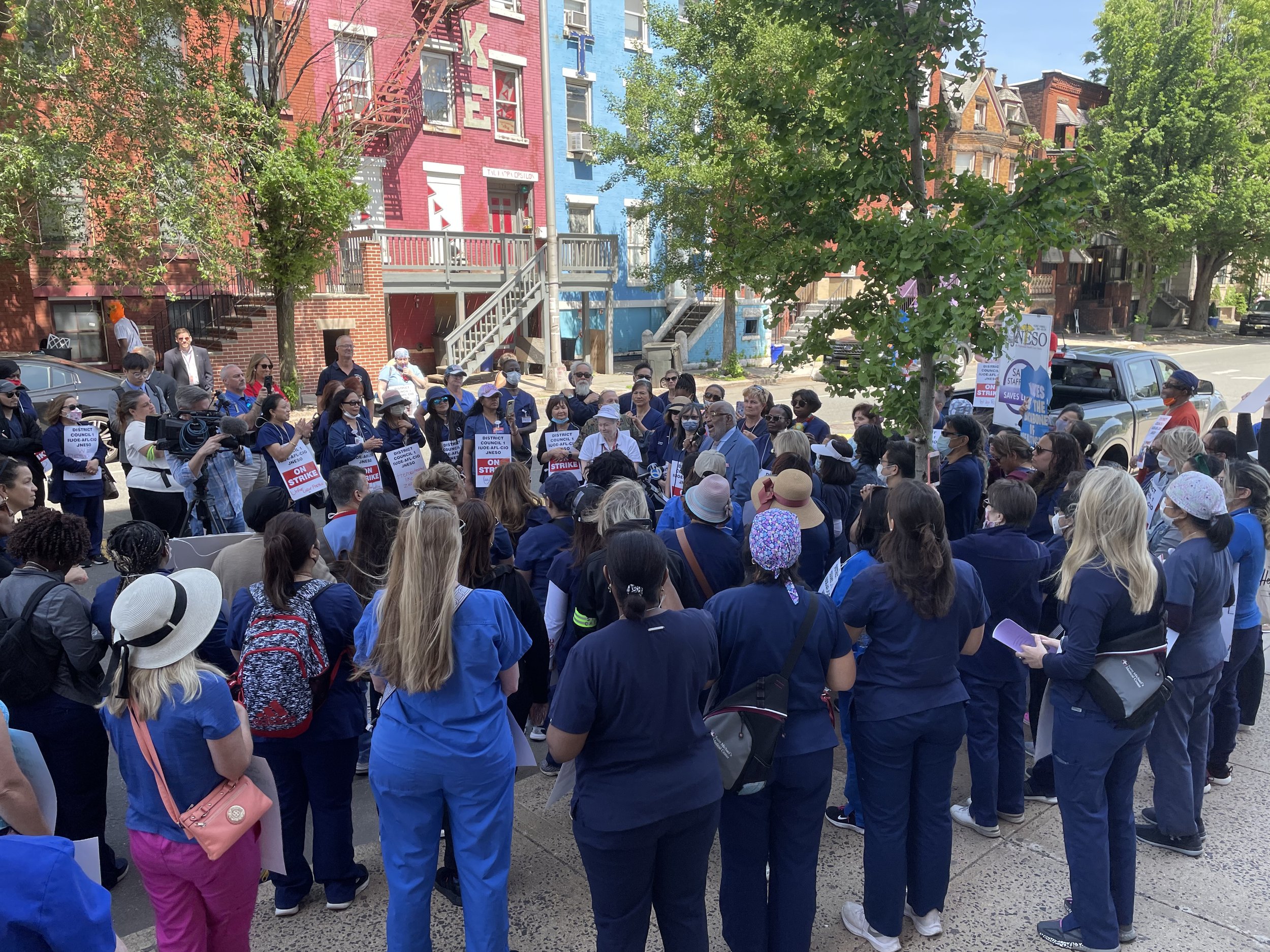
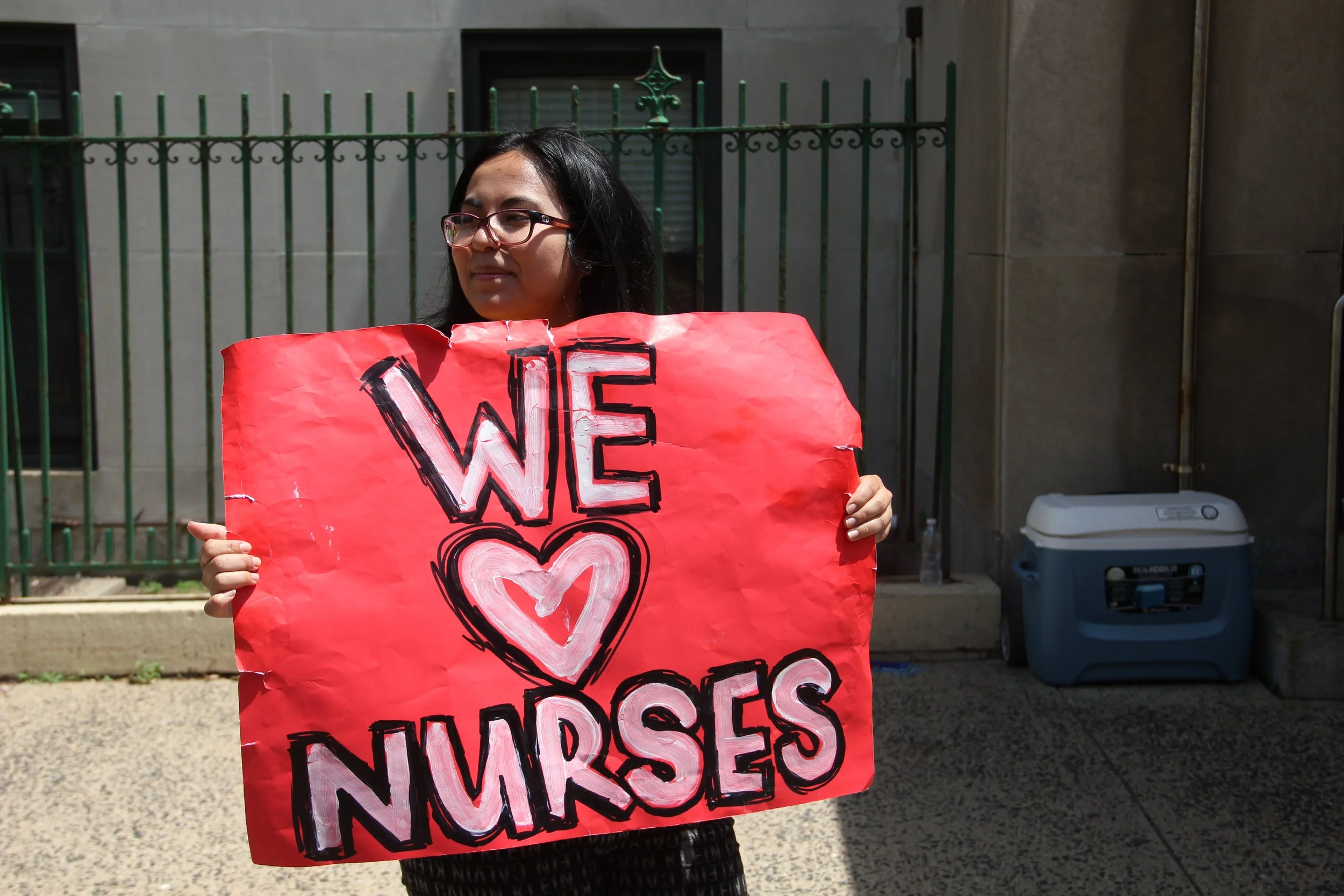
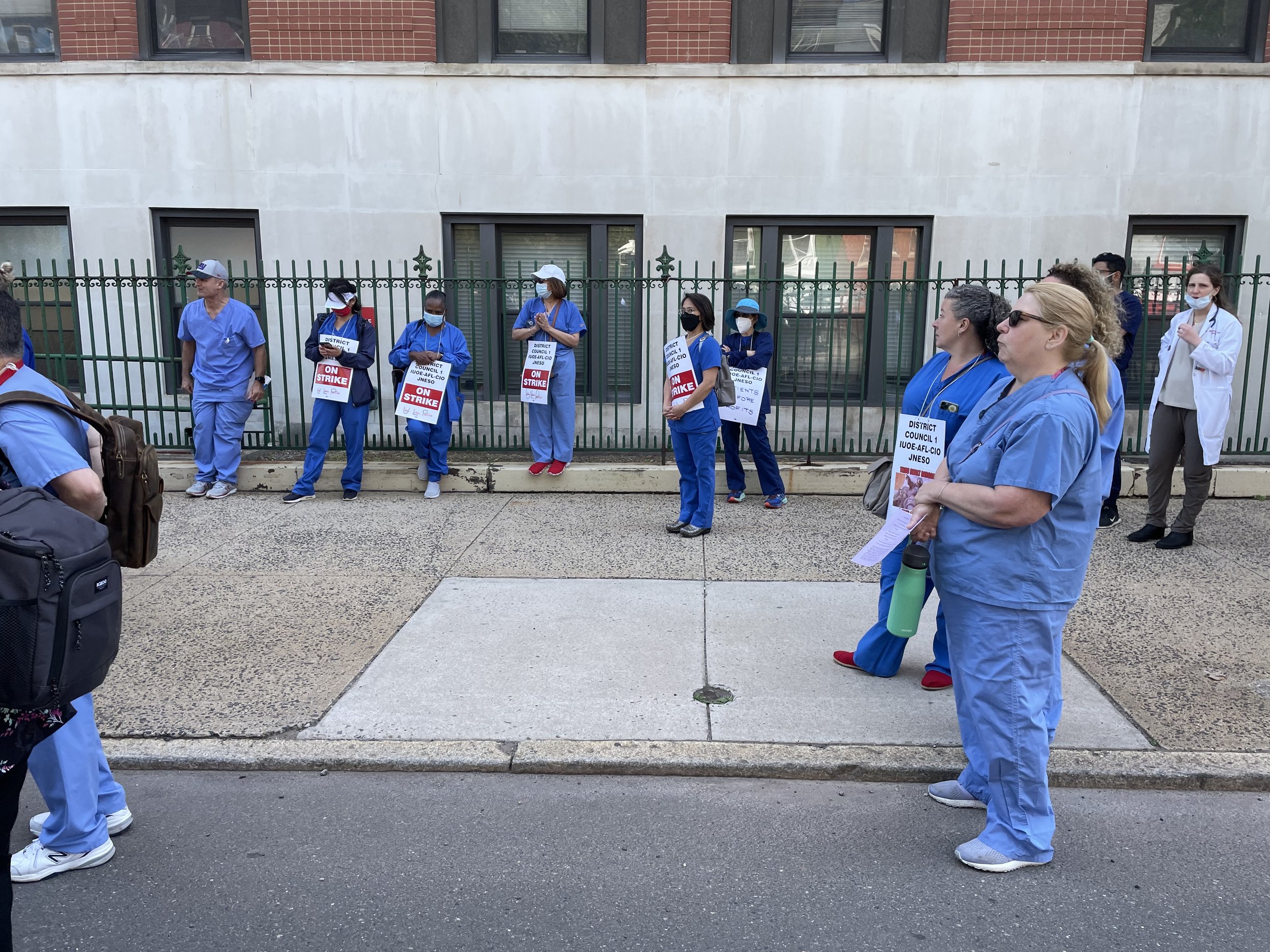
“It just forces you to see where healthcare is going, and it’s not going in a good way,” said Shanta Carter, a Registered Nurse of 24 years at St. Michael's Medical Center in Newark.
Carter is currently on strike with fellow nurses and technicians, demanding fair treatment and respect from their employer, who refuses to meet their demands for fair wages and health care benefits comparable to the other hospitals in the area.
“We have a shortage of nurses, patient safety is not taken as seriously as it should be, and healthcare insurance is being monopolized,” Carter said. “As long as healthcare facilities are for-profit, and it’s like they’re supposed to be managing healthcare, there’s always going to be a disconnect because they want to make a profit.”

